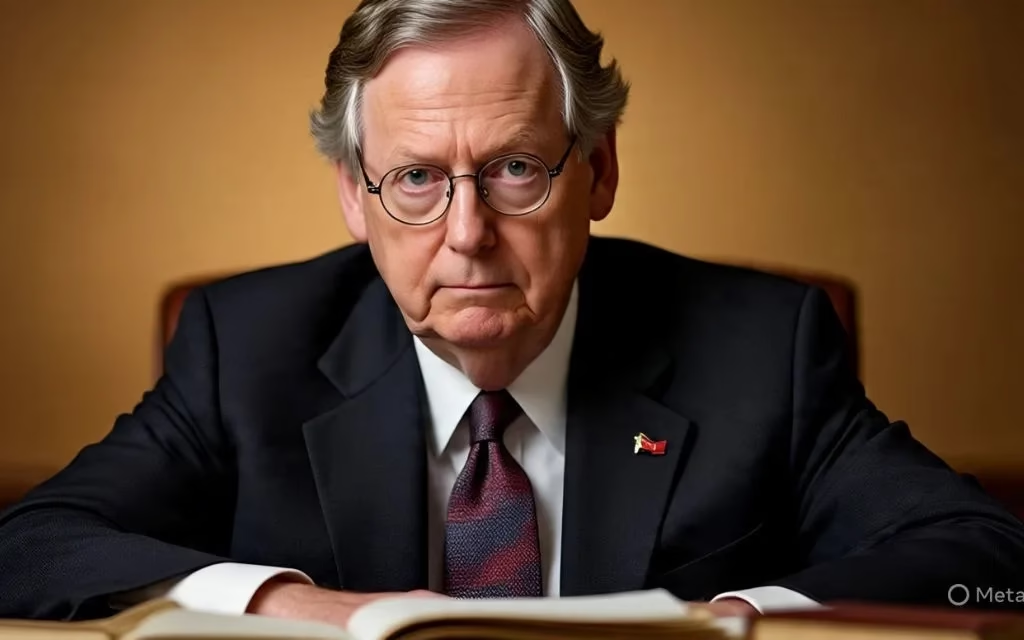Meta Description:
Explore the political legacy of Mitch McConnell, from his rise in the U.S. Senate to his role in shaping Republican strategy, judicial appointments, and national policy. A deep dive into the man behind decades of conservative influence.
Introduction
Mitch McConnell is one of the most influential and enduring figures in modern American politics. As a longtime U.S. Senator from Kentucky and a pivotal leader of the Republican Party, Mitch McConnell has shaped legislative strategy, judicial appointments, and national policy debates for decades. In this article, we explore the background, career highs and lows, power dynamics, controversies, and legacy of Mitch McConnell, highlighting his role in the Senate and his broader impact on American government.
Early Life and Education
Born in 1942 in Sheffield, Alabama, Mitch McConnell grew up in Louisville, Kentucky. He attended the University of Louisville and later earned a law degree from the University of Kentucky College of Law. Early on his ambition and drive were clear, as he pursued a career in politics and public service.
Entry into Politics: From Local to National
Mitch McConnell began his political career working as an aide and campaign manager. He served as Jefferson County judge/executive in Louisville before successfully running for the U.S. Senate in 1984. His campaign emphasized conservative principles, limited government, and economic growth.
Rise Through the Ranks
Once in the Senate, Mitch McConnell quickly became known for his sharp intellect, strategic positioning, and strong fundraising networks. He rose through party ranks to become Senate Minority Whip, Majority Leader, and Minority Leader at various times depending on which party held the majority.
Leadership Style and Legislative Tactics
Mitch McConnell is widely regarded as a master tactician. His leadership style focuses on discipline, procedural maneuvers, and unified party messaging. Under his tenure as Senate Republican leader, Mitch McConnell has advanced major legislative priorities, including tax reform, deregulation, and conservative judicial confirmations.
Judicial Appointments and the Supreme Court
Perhaps the most visible legacy of Mitch McConnell centers around federal judicial confirmations. As Senate Majority Leader, Mitch McConnell steered the confirmation of a record number of federal appellate judges and three Supreme Court justices. His refusal to hold a vote on a Supreme Court nominee in 2016 and his fast‑tracking of nominees in 2017 underscore his influence.
Major Legislative Achievements
Tax Cuts and Jobs Act of 2017
Under the leadership of Mitch McConnell, Republicans passed sweeping changes to tax policy, with substantial tax cuts and reforms aimed at spurring economic growth.
COVID‑19 Relief and Oversight
During the COVID‑19 pandemic, Mitch McConnell helped orchestrate the Senate’s negotiation and passage of multiple relief packages—while also pushing for oversight and fiscal restraint.
Challenges and Criticisms
Though respected for his political acumen, Mitch McConnell has drawn criticism on several fronts. Opponents argue that his aggressive tactics eroded Senate norms, increased partisanship, and contributed to political polarization. Critics also cite his impact on campaign finance, allegations of obstructionism, and a perception of putting politics over governance.
Relevant keywords: Senate norms breakdown, partisan gridlock.
Public Image and Media Coverage
Mitch McConnell often maintains a reserved and cautious public persona. He is sometimes described as private and calculating. Media coverage tends to focus on his strategic positioning, funding prowess, and behind‑the‑scenes influence. Despite criticism, Mitch McConnell consistently wins re‑election in Kentucky due to strong local support and entrenched incumbency advantage.
Influence on the Republican Party
Mitch McConnell has been a central figure in shaping Republican policy direction, candidate recruitment, and electoral strategy. His network of donors and allies gives him outsized influence. Under his leadership, the GOP prioritized conservative judges, deregulation, and fiscal conservatism.
Relevant keyword: Republican strategy.
Legacy in the Senate
What will Mitch McConnell’s legacy be? He has cemented himself as the longest‑serving Senate Republican leader in history. His tenure reshaped the judiciary, transformed the legislative process, and redefined power structures in Washington. Future historians will likely debate whether his legacy represents effective partisanship or a breakdown of cooperative governance.
Looking Forward: What’s Next?
As of now, Mitch McConnell continues to serve in the Senate and remains active in leadership discussions. While Senate control may shift, Mitch McConnell’s role in shaping the judiciary and conservative agenda remains significant. His future influence may include advising successors, supporting allies, or continuing to guide Senate strategy.




